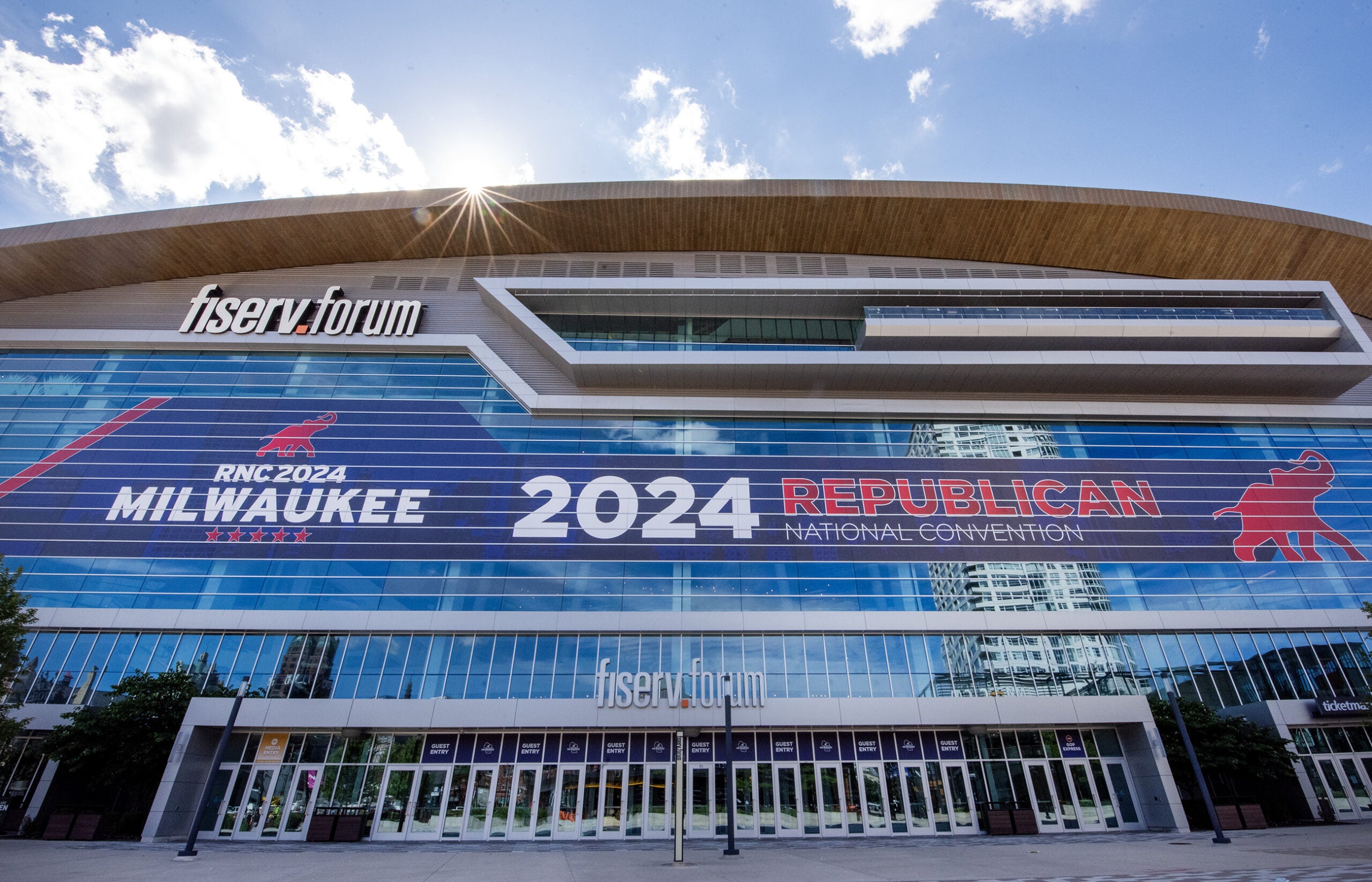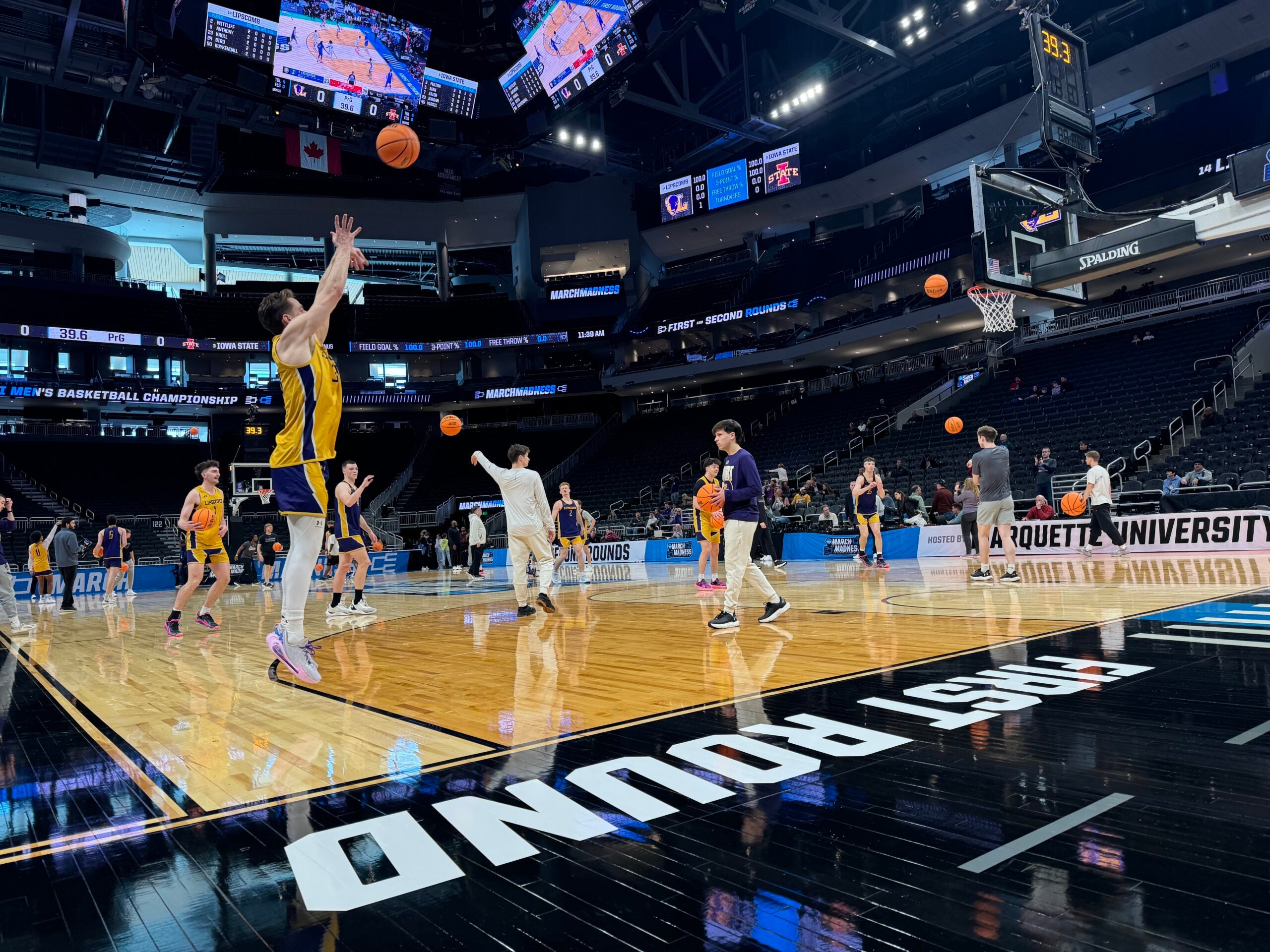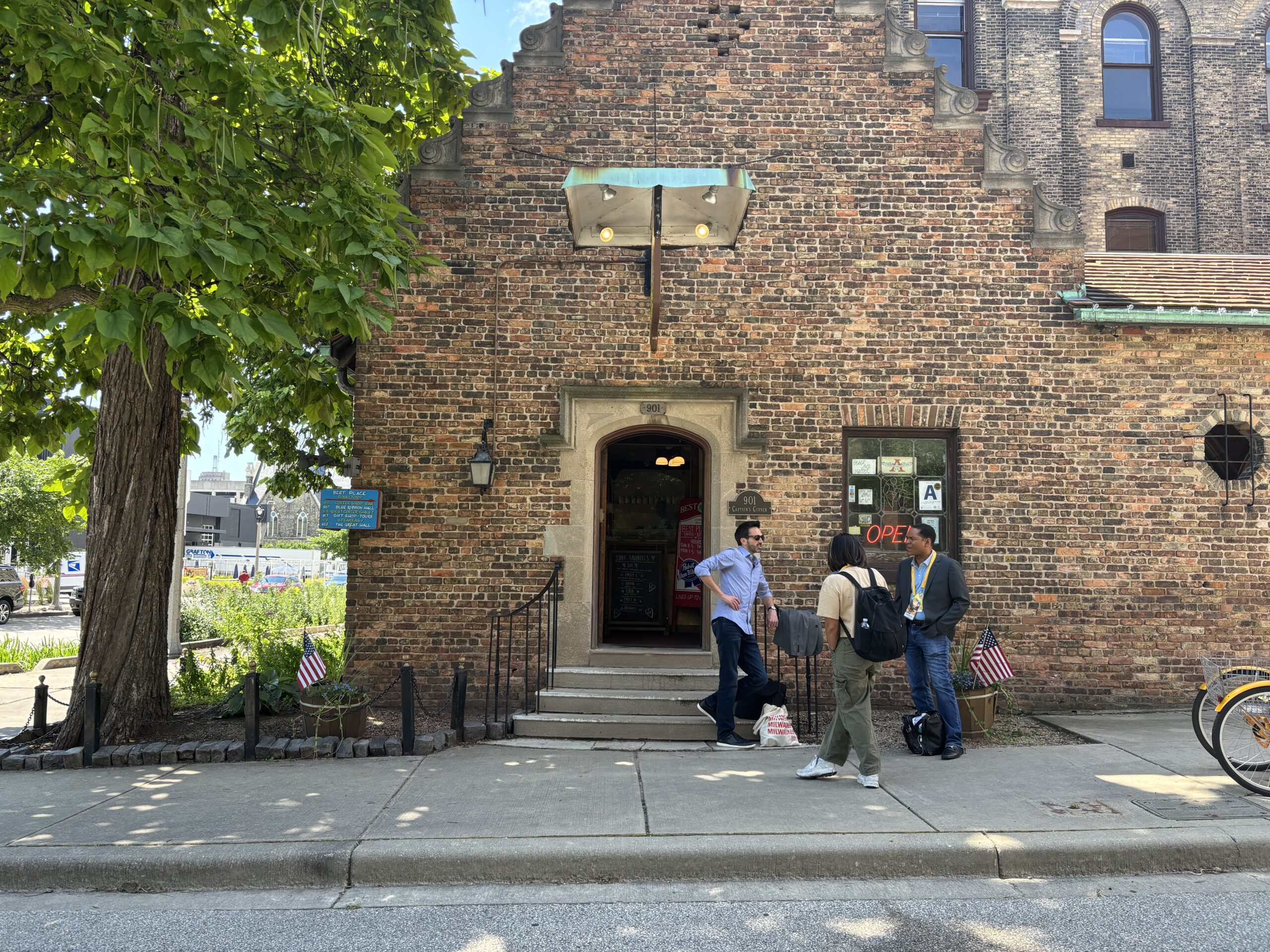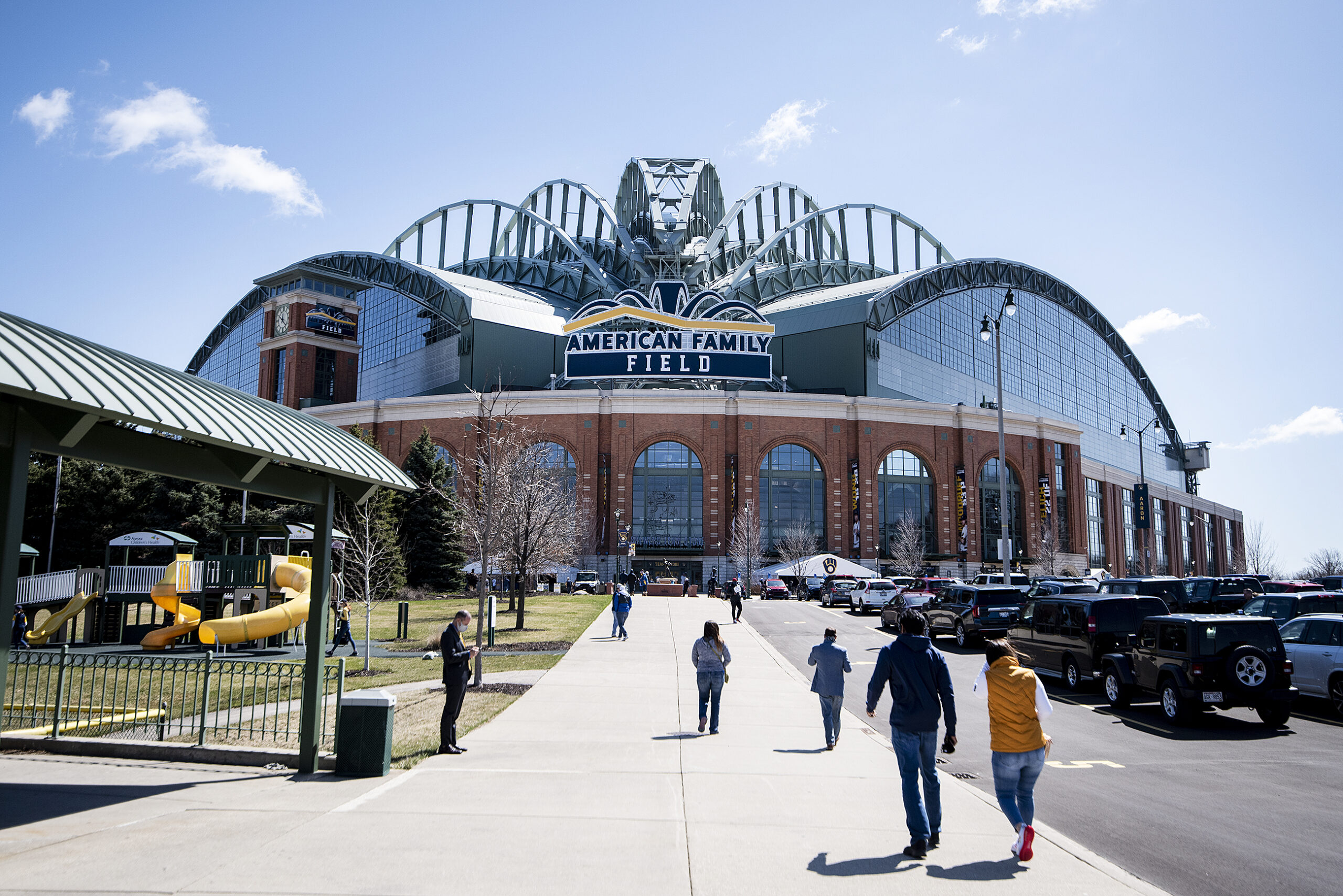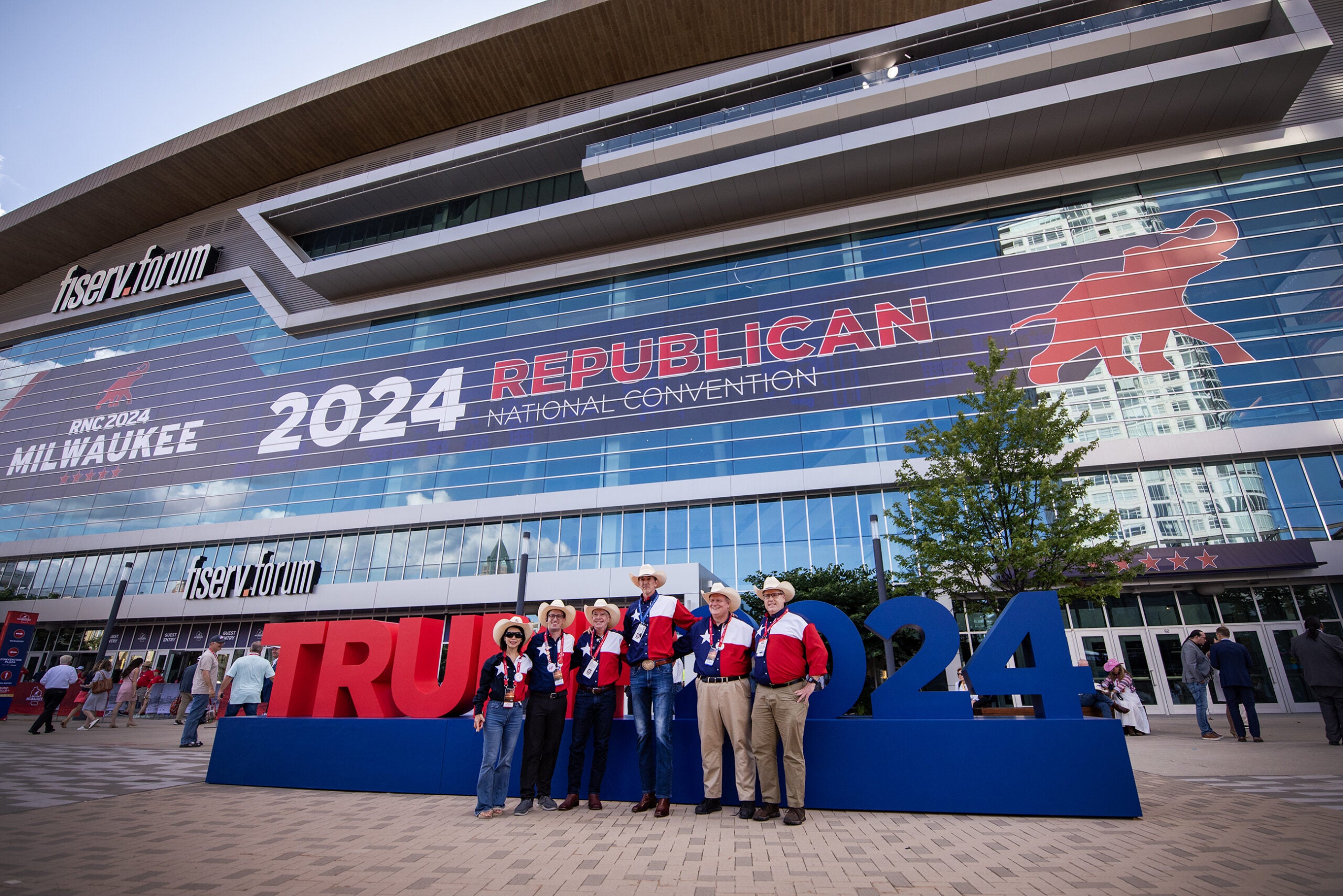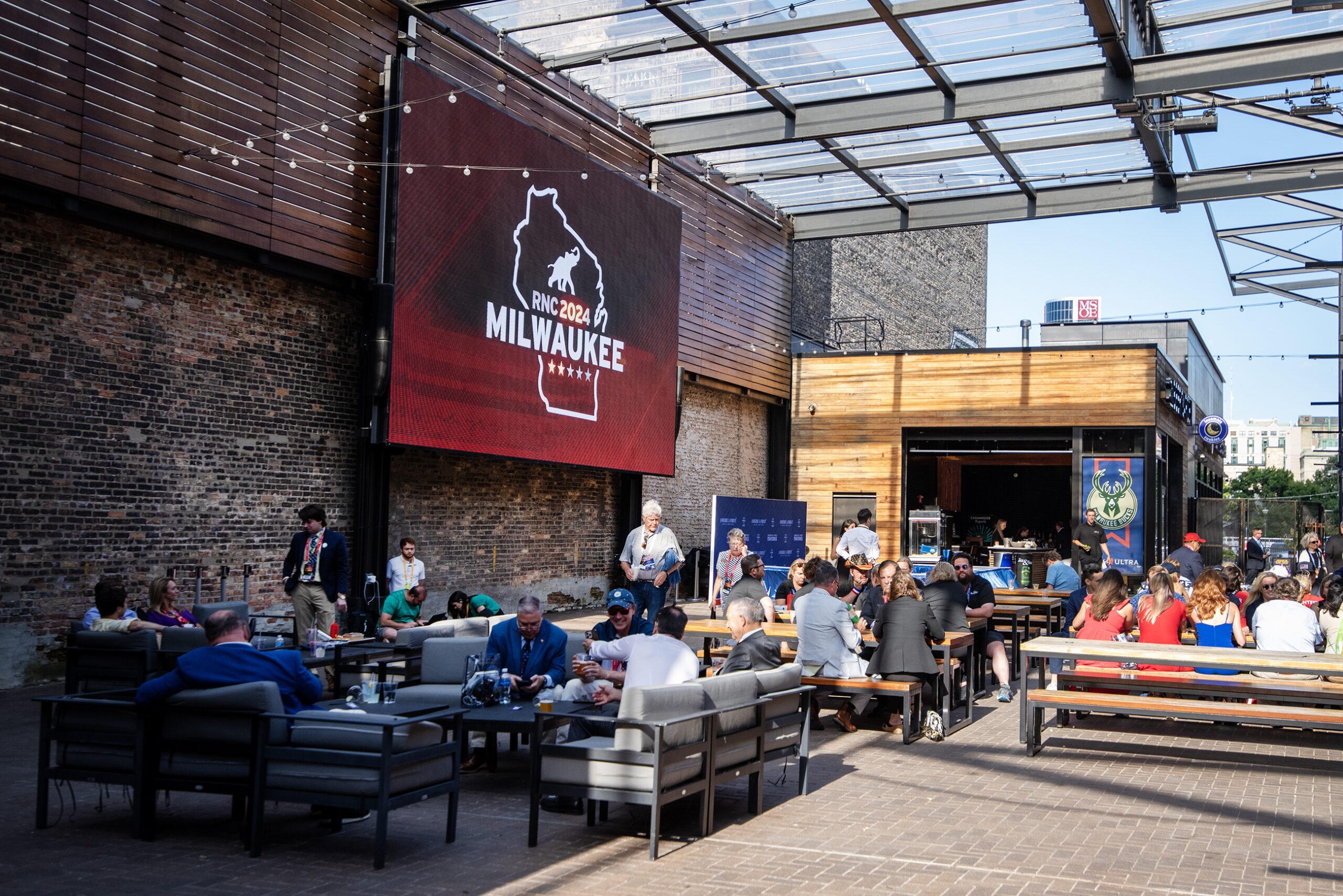On Aug. 5, 2022, several of Milwaukee’s top leaders and officials gathered in Chicago to announce the city had been picked as the official site of the 2024 Republican National Convention.
Hopes were high.
They still are.
Stay informed on the latest news
Sign up for WPR’s email newsletter.
Shortly after the announcement, Peggy Williams-Smith, president and CEO of VISIT Milwaukee, said in a statement she believes the city will put on the “best Republican National Convention yet.”
Now, the event, which is expected to bring upwards of 50,000 visitors to the city, is set to take place next week. It will run from Monday through Thursday, when Republican delegates will formally name former President Donald Trump their presidential nominee. The candidate’s speech will be followed by millions.
On a humid Tuesday in June, Ryan Cooke sat outside of Milwaukee Brat House, just around the corner from Fiserv Forum, where the convention will be held. He’s been preparing for what he believes will be a boon for local businesses across the city.
“We’re anticipating it creating a lot of hassle but bringing a lot of business,” said Cooke, the director of operations for Heard Hospitality, which owns the Milwaukee Brat House and other restaurants and bars.
Cooke hopes the convention will bring his restaurants the same amount of business they saw during the Milwaukee Bucks’ 2021 NBA Finals run. He’s making sure they are fully stocked.
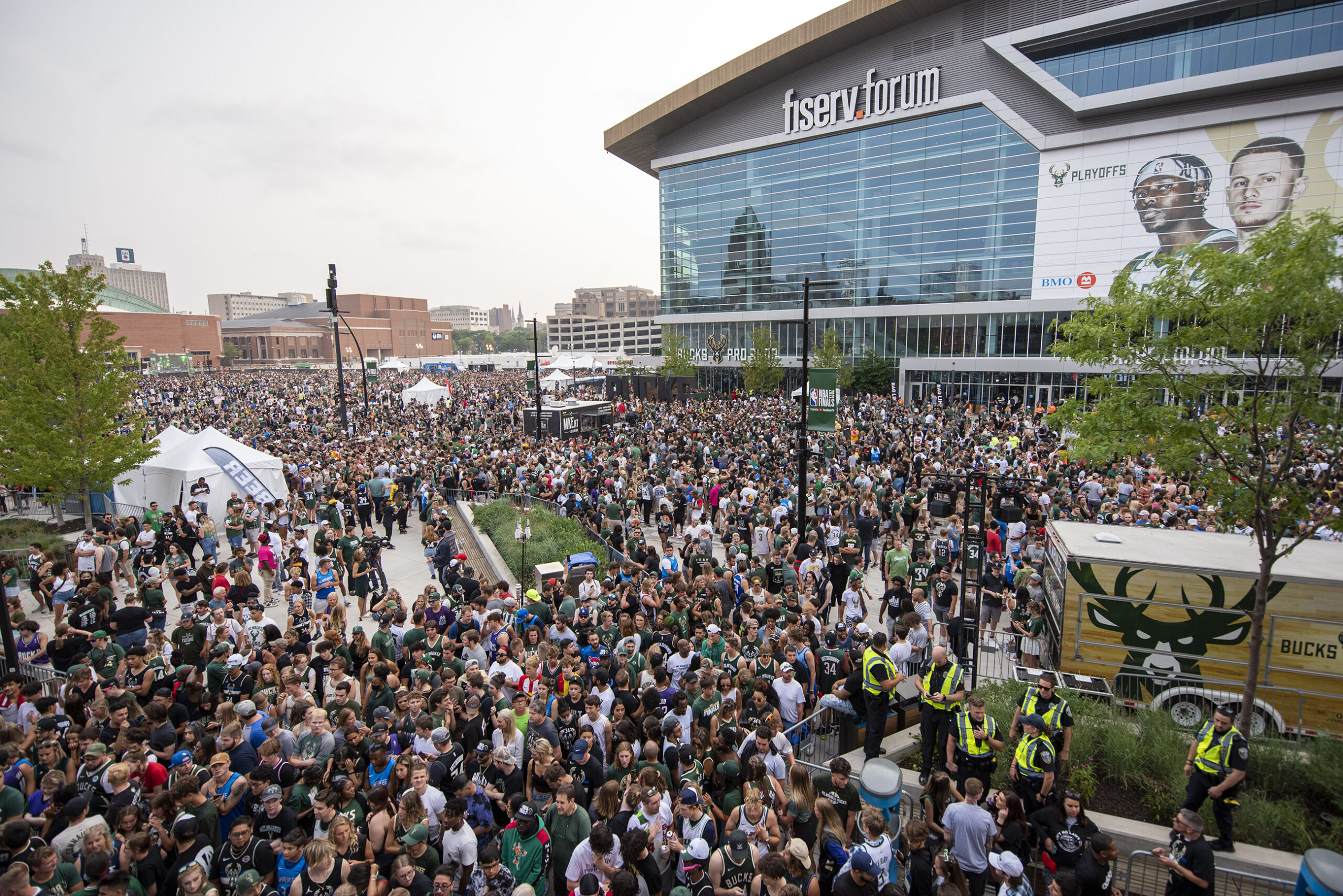
“We could not have been any busier (in 2021),” Cooke said. “We’re hoping the RNC brings out something like that.”
Supporters of the event have said it will bring around $200 million in economic benefits to the city. Williams-Smith has cited that figure several times, including last month during a Milwaukee Press Club event.
“The No. 1 reason that we did this is we knew it would generate significant short- and long-term economic impact,” Williams-Smith said.
But not everyone believes the hype. In recent weeks, some business owners have publicly questioned whether the RNC will actually be that good for Milwaukee businesses. They include Gary Witt, the president and CEO of the Pabst Theater Group. Witt said he signed a contract with the RNC where the theater group agreed to book events for the convention.
“As the days and weeks and the months passed and we continuously had conversations and we awaited these multiple visits by people, they just really never happened,” Witt said. “We had very few visits to the venues — nothing, really, of any consequence at all.”
In late June, Witt said no events had been booked at the Riverside Theater, Pabst Theater, The Fitzgerald or the Vivarium. Turner Hall Ballroom has been rented out by CNN during the convention.
“Essentially, we sit today — as a lot of other spaces are in the city of Milwaukee — basically unused and empty during a time period when we were specifically told to hold those dates open,” Witt said.
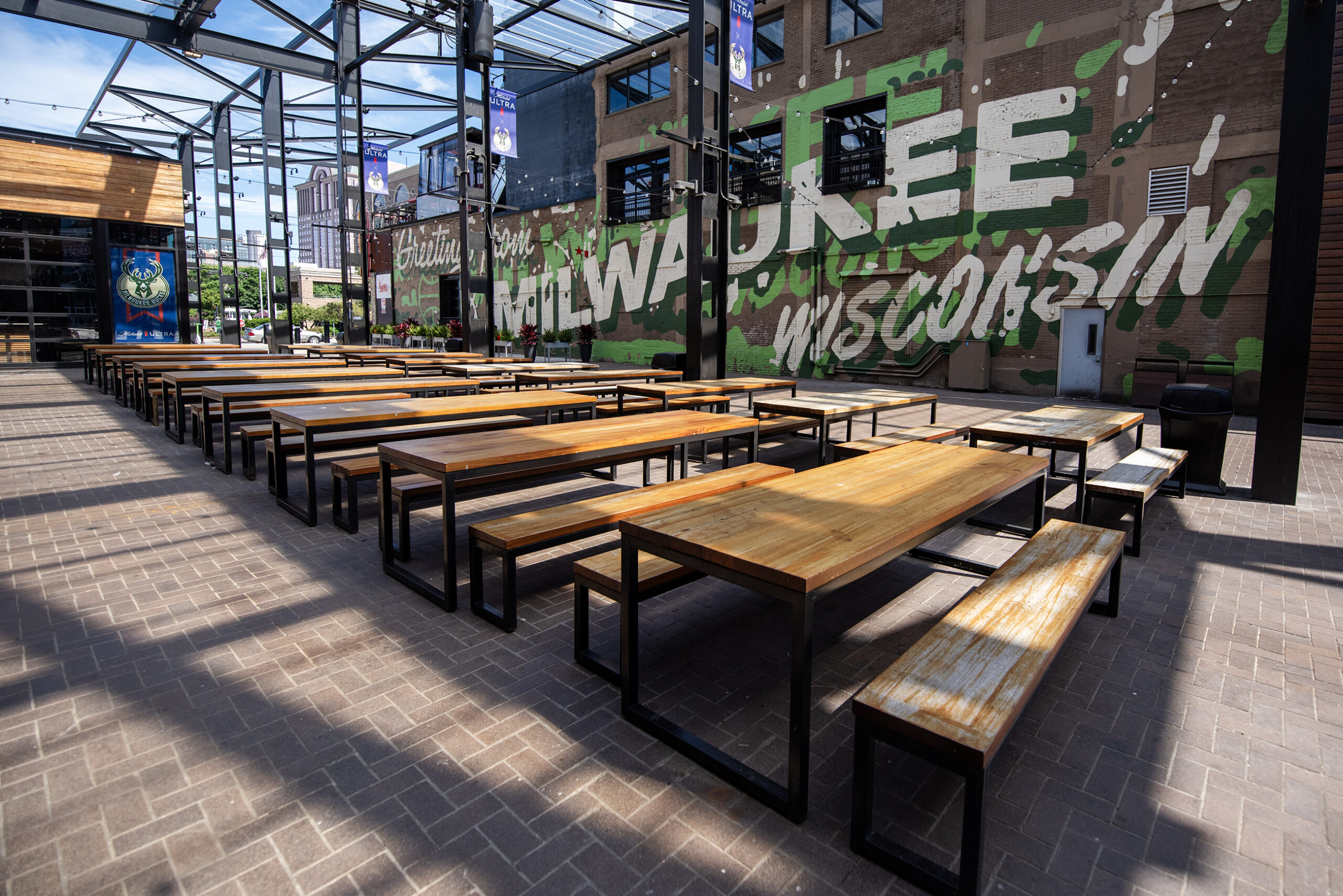
Economist says normal business can ‘plummet’ during political conventions
The economic impact of a huge event like a political convention includes not just direct spending by visitors during the four-day event but also the long-term benefits that can come with having a spotlight on the city. In addition to people staying in hotels and spending money at bars and restaurants, local officials hope hosting the RNC makes it more likely that other large-scale events will choose the city in the future.
“They overpromised and underdelivered.”
Gary Witt
Williams-Smith said the expanded Baird Center, formerly known as the Wisconsin Center, will also add more meeting space room for the RNC and other events.
“With hosting this event, and the expansion (of Baird Center), it’s just the perfect storm of people being interested in coming to Milwaukee,” she said.
But economic impact estimates are not an exact science, and some economists say the $200 million estimate is just that — an estimate.
“You’ll see numbers being thrown around in the hundreds of millions of dollars of potential economic impact,” said Victor Matheson, an economics professor at the College of the Holy Cross in Massachusetts who authored a 2017 study on the impact of political conventions. “Going back and actually looking at data from cities that have hosted these events shows that the true economic impact is a fraction of that being claimed by both the Republicans and the Democrats when they have major conventions.”
Matheson said the estimate doesn’t account for the normal business that would have gone on regardless of the convention.
“These are wildly disruptive events,” Matheson said. “Regular business can often plummet around these events.”
Although tens of thousands of visitors are expected to flock to Milwaukee — many staying in hotels throughout southeast Wisconsin — Matheson said not all of those dollars translate into local impact.
“Lots of the economic impact that occurs is not sticking in Milwaukee but is instead leaving town,” Matheson said. “Higher hotel prices: That doesn’t necessarily benefit Milwaukee. It benefits national headquarters of those hotel chains.”
Witt said he was excited when the announcement came that Milwaukee had won the bid to host the event. But now, he believes it’ll be a bust for the city.
“They overpromised and underdelivered,” Witt said about RNC organizers.
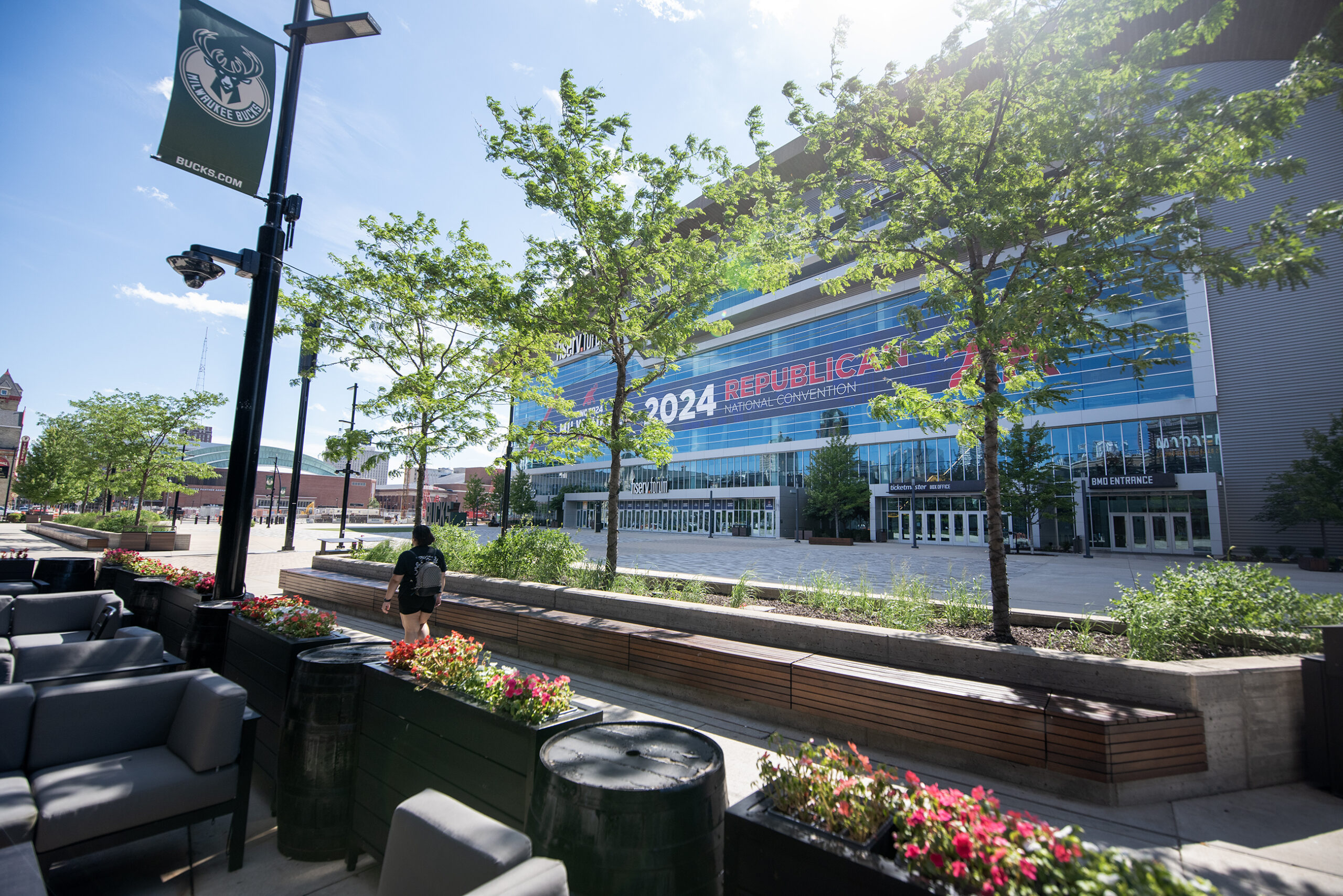
RNC still impacting local businesses in different ways
Milwaukee was also selected to host the Democratic National Convention in 2020. But that event became mostly remote because of the COVID-19 pandemic. Many local business owners are hoping to get in on the action this time around.
Shane Abrahamson works for Brick 3 Pizza, which is right around the corner from Fiserv Forum. He said he’s excited to see what happens during the convention.
“I think it’s going to be great for us, and it’s going to bring a lot of money to the downtown area that we wouldn’t see on a normal week,” Abrahamson said.
However, no events are being held at Fiserv Forum for a month before and a month after the event because of the setup and takedown needed for the convention.
“So that hurt us big time,” Abrahamson said.
Cooke said the restrictions during RNC preparations haven’t hurt Milwaukee Brat House, as plenty of law enforcement and media have been in the area during the setup throughout the past few weeks.
“So we’re getting good lunch rushes from that,” Cooke said. “Those people eat and drink, too.”
At least one local business, The Mothership in Bay View, decided to close its doors during the week of the event. Ricky Ramirez, the owner of the bar, said his staff made a collective decision to close during the convention and do private events instead.
Ramirez said he gave his staff that option for their “mental health.”
“I wanted to offer that to my staff, and they took it,” Ramirez said.
Some local property owners are also looking to cash in during the event. Months ago, local realtor websites and rental companies were listing short-term rentals for as high as $50,000 during the week of the convention.
Hosts on Airbnb and Vrbo are listing their properties, including Jackie Berndt, who operates a one-bedroom Airbnb in Milwaukee’s Bay View neighborhood. A one-week stay at her unit during the week of the convention costs over $300 a night.
Berndt said she’s happy to show off the city. She said she rented the place out just weeks before the first day of the convention.
“I love Milwaukee, and we keep the door open for people to come and see the city,” she said.
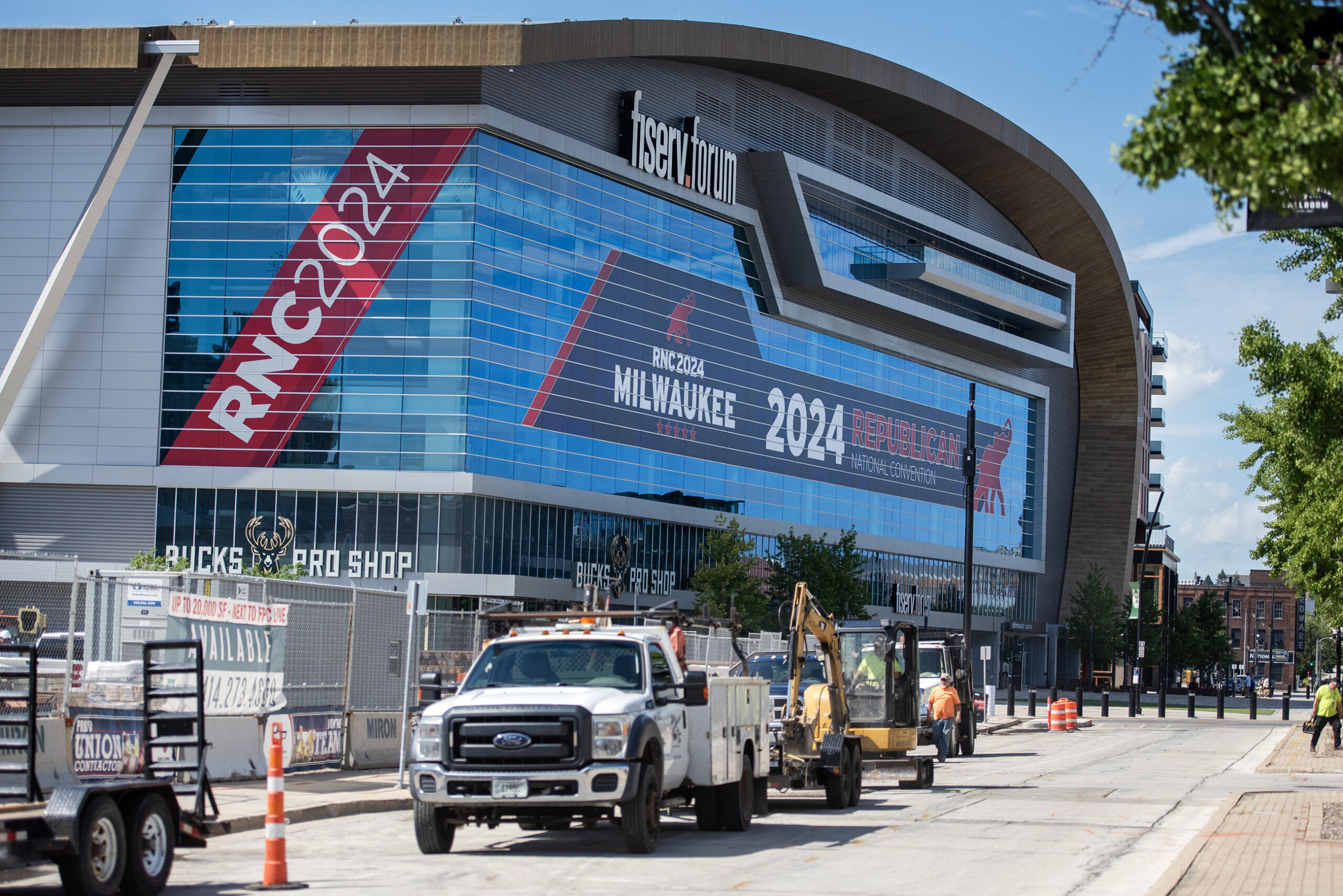
Cleveland RNC was good for ‘civic pride,’ host committee chair says
The last presidential election year unaffected by the pandemic was 2016, when Cleveland hosted the RNC over four days in July. Before the event, city leaders said the convention would bring in $200 million. They also estimated the event would bring in 50,000 visitors.
But a 2017 Cleveland State University study found the economic impact from the 2016 convention was $142.2 million. The study found approximately 44,400 visitors came to the event. That included convention-goers, media and law enforcement.
The largest economic impact from the convention was from visitor spending, according to the study.
“On the other hand, it can be argued that the RNC displaced economic activity already occurring in downtown Cleveland, and the region lost value in terms of spending and productivity,” the study found.
David Gilbert, the CEO of Destination Cleveland and the CEO of the RNC Host Committee for the 2016 Republican National Convention in Cleveland, said he believes the event was a success.
“There still is a lot of civic pride — even now, eight years later — of people talking about how great it was and, ‘Oh hey, remember when,’” Gilbert said.
Since the 2016 convention, Cleveland has hosted the 2021 NFL Draft, Major League Baseball’s 2019 All-Star Game and the 2022 NBA All-Star game. Gilbert said he believes that’s partly due to the success of the convention.
Williams-Smith said Milwaukee getting the RNC has led to an increase in calls to VISIT Milwaukee’s sales team. She said the event, once it’s said and done, will go a long way to “generate tourism.”
“And we genuinely know that tourism plays a key role in making Milwaukee better,” Williams-Smith said.
Host Committee excited to show city off
Ahead of the event, Alison Prange, the chief operating officer for the MKE 2024 Host Committee, said over 4,000 volunteers have been secured to help the RNC run smoothly. Plans for the official RNC welcome party are also coming together. Trace Adkins will perform at Henry Maier Festival Park on Sunday for thousands of people.
Prange believes the convention will be similar to the first presidential debate of the Republican primary, which was held at the Fiserv Forum last summer.
“There was a noticeable change of energy,” Prange said. “Places were bustling and busy, and we look forward to that experience happening again.”
Prange said she’s excited to show the city off to convention-goers who are visiting Milwaukee and Wisconsin for the first time. Organizers have said the four-day event will put Milwaukee on a “global spotlight.“
“We are encouraging … businesses here in Milwaukee to put out the Wisconsin welcome that we are all known for and capitalize on the opportunity that we all have to have visitors in our city,” she said.
Wisconsin Public Radio, © Copyright 2025, Board of Regents of the University of Wisconsin System and Wisconsin Educational Communications Board.

